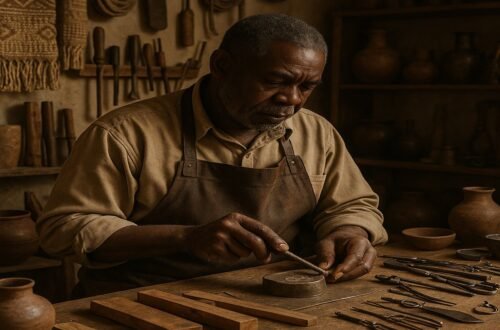Who is Kristy McNichol? A Star Born in the Spotlight
Christina Ann McNichol, better known as Kristy, entered the world on September 11, 1962, in Los Angeles, California. Growing up in a family touched by divorce when she was just three years old, Kristy and her brother Jimmy found solace and opportunity in the entertainment industry.
The siblings started appearing in commercials together, and it didn’t take long for casting directors to notice Kristy’s unique presence. Her natural ability to connect with audiences, combined with an authenticity that felt rare even in Hollywood, set her on a path that would make her one of the most beloved faces of 1970s television.
By the time she was a teenager, Kristy McNichol had already become a household name. Her performances resonated with viewers who saw themselves reflected in the characters she brought to life.
Early Career and Breakthrough Success
Before landing her career-defining role, Kristy appeared in guest spots on shows like “Starsky & Hutch,” “The Love Boat,” and “The Bionic Woman.” These early appearances showcased her range and hinted at the talent that would soon captivate millions.
Everything changed in 1976 when she was cast as Letitia “Buddy” Lawrence in the ABC drama “Family.” The show explored the complexities of American family life, and Kristy’s portrayal of the tomboyish, emotionally vulnerable Buddy struck a chord with audiences. Her performance was raw, honest, and deeply moving.
The recognition came quickly. She won her first Primetime Emmy Award in 1977 for Best Supporting Actress in a Drama Series, and then won again in 1979. These weren’t just awards for a talented young actress. They were acknowledgments of someone who had already mastered her craft at an age when most people are still figuring out who they are.
Kristy McNichol Net Worth and Career Earnings
When people search for Kristy McNichol’s net worth today, they find estimates hovering around $4 million. While this figure might seem modest compared to some of today’s entertainment stars, it represents a career built on genuine talent and hard work.
Her salary for “Family” started at $7,500 per episode in 1977. By 1988, she was earning $15,000 per episode for her work on “Empty Nest.” These numbers tell the story of an actress whose value in the industry grew steadily over time.
But television wasn’t her only source of income. Kristy also earned money from her film work, her music career with brother Jimmy, and later from producing credits. She and Jimmy released an album in 1978 that included the single “He’s So Fine,” which reached number 70 on the Billboard chart.
The Golden Years: Television and Film Success
The late 1970s and early 1980s were Kristy’s peak years. After “Family” ended in 1980, she transitioned to film with impressive results. Her role in “Little Darlings” opposite Tatum O’Neal became a cultural touchstone for a generation coming of age.
Then came “Only When I Laugh” in 1981, a Neil Simon film that earned her a Golden Globe nomination. Critics praised her ability to hold her own alongside established stars, and the film proved she could carry dramatic weight on the big screen.
In 1988, she returned to television with “Empty Nest,” playing Barbara Weston in this popular spin-off of “The Golden Girls.” The show ran for seven seasons and introduced Kristy to a new generation of fans. During this period, she also took on producing roles, expanding her influence behind the camera.
Behind the Scenes: Struggles and Mental Health
What audiences didn’t see was the toll that fame was taking. In 1982, while filming “Just the Way You Are” in France, Kristy experienced a breakdown that halted production for an entire year.
She later described the experience to People magazine in heartbreaking detail. She couldn’t sleep, couldn’t eat, and spent most of her time crying. Her weight dropped to 96 pounds. She was shaking constantly, trapped in a cycle of anxiety and confusion that she couldn’t escape.
The pressure wasn’t just about the demands of acting. Kristy was also struggling with her sexuality at a time when being openly gay in Hollywood could end a career. The need to hide such a fundamental part of herself added another layer of stress to an already overwhelming situation.
In 1992, doctors diagnosed her with bipolar disorder. The diagnosis explained so much of what she had been experiencing, but it also meant confronting a serious mental health condition that would require ongoing management.
The Decision to Walk Away
When Kristy McNichol announced her retirement from acting in 2001, she had been in the business for 24 years. Her statement was simple but profound: it was time to play her biggest part, which was being herself.
For someone who had spent most of her life performing for others, this decision represented a fundamental shift. She was choosing her own well-being over the expectations of an industry and a public that had known her since childhood.
In 2012, she took another brave step by publicly coming out as a lesbian. She shared a photo of herself with Martie Allen, her partner of more than 20 years. Her publicist explained that Kristy wanted to help young people who were being bullied for being different.
Since then, she has lived quietly, teaching acting at a private school in Los Angeles and focusing on charity work. She has largely stayed out of the public eye, occasionally reuniting with her brother Jimmy for projects like the 2013 documentary “Planet View.”
Legacy and Life After Hollywood
Kristy McNichol’s impact goes beyond the roles she played. By speaking openly about her mental health struggles and her sexuality, she has helped countless people feel less alone.
Her story challenges the narrative that success in Hollywood is the ultimate goal. She walked away from fame at a time when she could have continued working, choosing instead to prioritize her mental health and personal happiness.
Today, she represents something increasingly rare in celebrity culture: someone who knew when to step back. Her decision to retire wasn’t a failure. It was an act of self-preservation and courage.
Conclusion: More Than Just a Net Worth
When we talk about Kristy McNichol’s net worth, we’re really talking about so much more than money. We’re talking about a woman who gave audiences some of the most memorable performances of the 1970s and 1980s, who won Emmy Awards before she was old enough to vote, and who had the strength to walk away when continuing would have cost her too much.
Her $4 million net worth is the financial legacy of a remarkable career. But her real legacy is in the lives she touched through her performances, the conversations she started about mental health, and the example she set by choosing authenticity over fame.
Kristy McNichol showed us that sometimes the bravest thing you can do is stop performing and start living. That’s a lesson worth more than any net worth figure could ever capture.





